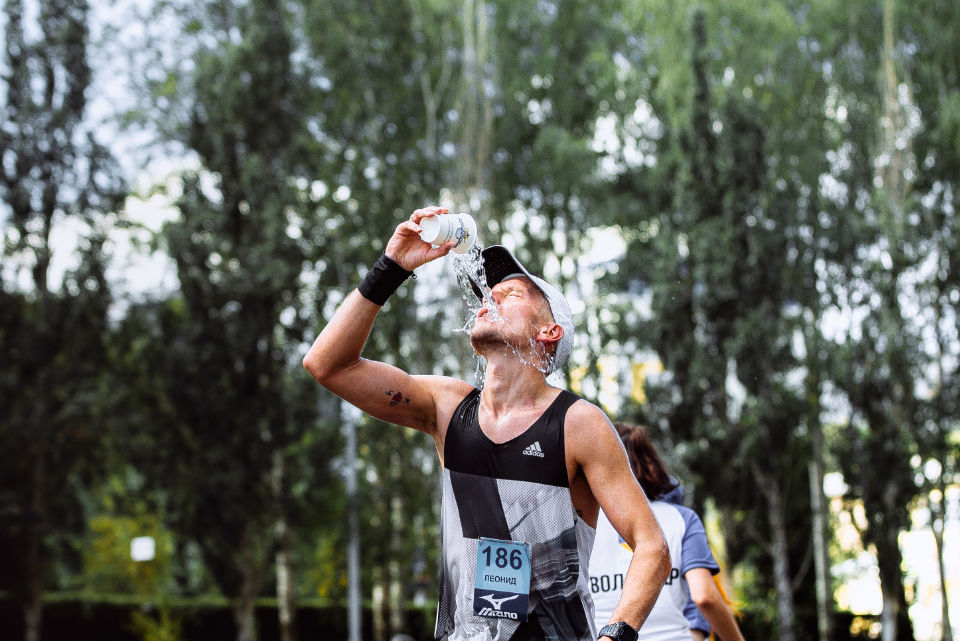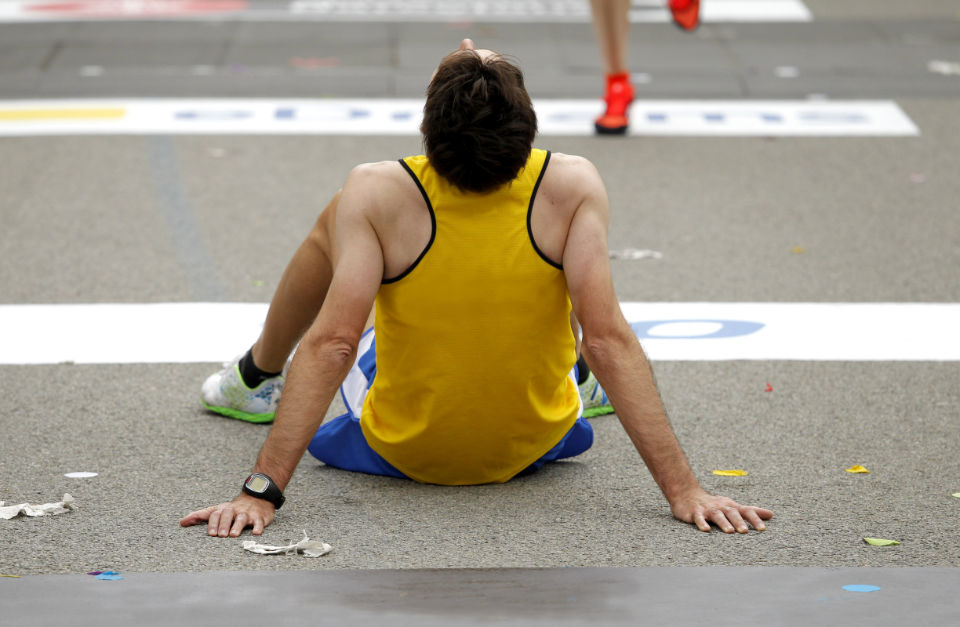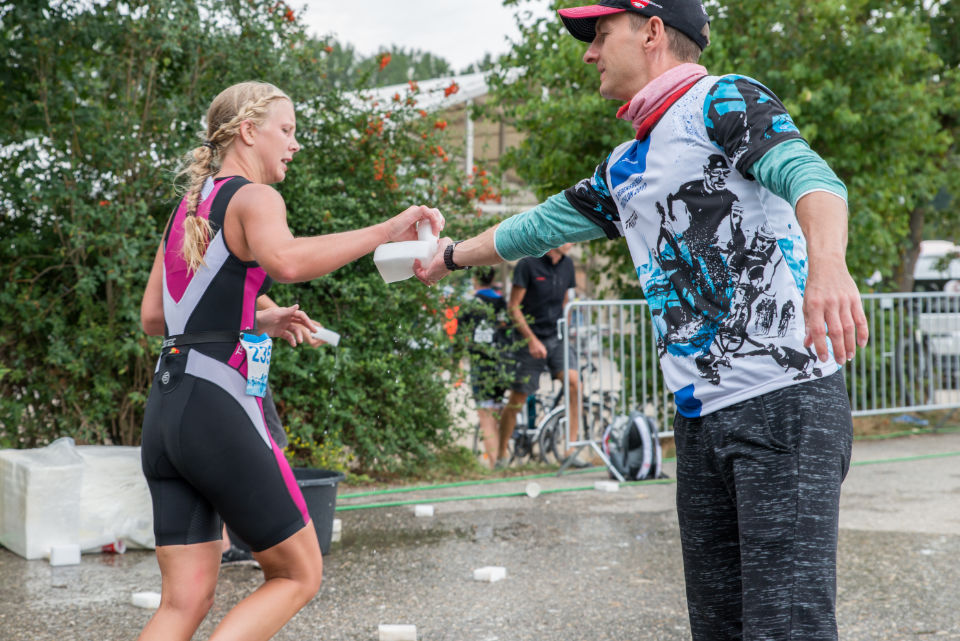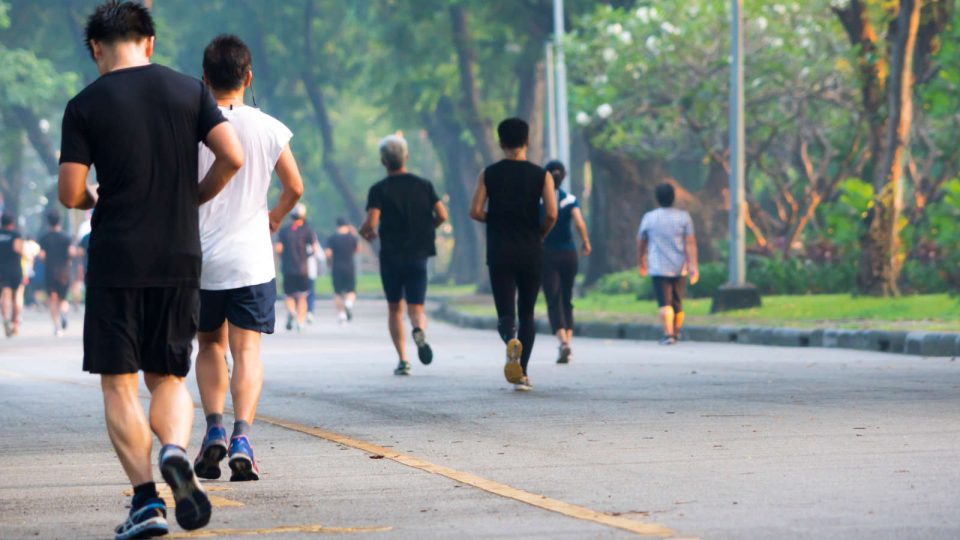When the “father” of the U.S. running movement, Jim Fixx, suddenly dropped dead at age 52 on 20 July 1984, the sport took a serious hit. Fixx was an example of healthy living; in fact, he attributed his fitness to the sport.
But a silent killer lurked in his body. After Fixx died, three of his coronary arteries were found to be profoundly blocked, literally stopping him in his tracks following a routine conditioning run.
Since that day, the public has grown used to reading that marathoners—some of whom are extremely young—are dying following marathons and for no apparent reason. What’s going on? Why do marathon runners collapse and die?
Is it the weather?
According to the Cleveland Clinic, extremes in temperature cause arteries to constrict. This causes blood pressure spikes.
Add the stress of competition and extreme exertion, and runners predisposed for heart issues can be impacted, says “Forbes” columnist Marshall Shepherd, who writes, “Heat and humidity have long been silent killers”.

How about air temperature?
Nobody has to remind runners in Southeast Asia about the humid, sultry temperatures that linger at certain times of the year. It’s not temperature change that is the culprit; it’s the rapidity of the change.
At the 2018 American College of Cardiology’s annual symposium, research concluded that: “extreme swings in temperature on a day-to-day basis may lead to heart attacks.”
If you know that weather forecasters are predicting temperature extremes, taking your usual training run may not be such a great idea.
Is genetics to blame?
In fact, genetics is often the reason healthy young runners suffer coronary issues without warning. Says Baylor University Medical Center cardiologist Peter McCullough, when someone in their 20s and 30s suddenly dies during or after a run, “the most common cause is hypertrophic obstructive cardiomyopathy” (HOC), a thickening of a section of the heart wall that doesn’t start to develop until puberty.
But that’s not the only genetic abnormality a runner may experience. According to an in-depth article about sudden death in young athletes published by “Forbes,”
“Another contributing factor to low survival rate in patients under 40 is ventricular tachycardia preceding cardiac arrest.”
Even intervention with a defibrillator may not work because oxygen deprivation can do damage to the heart so quickly.

Some runners ignore the obvious
Runners can’t hide from some of the facts being unearthed in today’s medical literature about the risks they may take in the name of running. In fact, at Montreal’s Canadian Cardiovascular Congress, doctors concluded that “regular exercise reduces cardiovascular risk by a factor of two or three.”
At first, that looks like good news. But researchers add that “extended vigorous exercise performed during a marathon raises cardiac risk by seven-fold”.
As you can see, there are myriad factors that can tip the balance, particularly for those living with undiagnosed cardiac issues.
How you can protect yourself and avoid dying during marathon
Having the wisdom to listen to your body when it tells you that the 21km you scheduled may not be the best idea because you don’t feel well, could save your life.
Alternately, if too many circumstances combine to present a health threat—weather, air quality, family history—just say no.
According to the World Health Organisation (WHO), a mix of heat, humidity and heart disease (silent or not) are a lethal combination that can be exacerbated by following an unhealthy diet or a lackluster conditioning program. Do you have your heart checked regularly?
An echocardiogram can spot 75-percent of heart murmurs that can lead to a cardiac event with the potential to kill a runner without a single warning.
Will you have to foot the bill for this test? You will. But Singapore is fast becoming a top “healthcare miracle” model and inspiration for the world, so take advantage of your good fortune and have your heart checked.
What you can do to prevent sudden death while running:
- Listen to your body: Your body will give you clues and cues. Report to your doctor immediately for chest pain, shortness of breath, discomfort in the upper body, light-headedness that comes on with exercise or in your training.
- Investigate your family history: Be aware of any cases of sudden cardiac death in your family. Let your doctor know your history and do regular pre-health screening so they can help you.
- Maintain a healthy cholesterol level: Keeping those coronaries clean is important. Take a statin pill to lower your cholesterol if recommended by your physician.
- Follow your doctor’s advice: Although you might do doctors searching for a second opinion or the answer you want to hear, follow your doctor’s advice is important.

Responsibility for your heart health is on you
But that doesn’t mean you should break up with your favourite activity. Instead, return to your hunter-gatherer ancestor’s habit of doing a variety of exercises, alternating days, getting adequate rest and if you’re really savvy, say sports medicine professionals, get that heart checked.
There’s a reason today’s marathon organisers have ambulances and defibrillators on site—they’re for those who may not have felt a single symptom but are like loose cannons, waiting for exacting circumstances to fire them off.
Runners must take responsibility for their own health, so they can keep doing what they love.
Does cardiovascular disease run in your family? Have you had your heart checked? What’s stopping you?
Can you die from running?
Do marathon runners die early?
Studies have suggested that people who run more than 32km a week, or at an average pace of 12 kph or faster are more likely to have shorter lifespans than those who run slower over shorter distances.
What causes marathon runners to die?
A study of 10.9 million marathon runners revealed that 59 had cardiac arrest either during or in the hour after their long-distance run and 42 died. Studies have found that marathons can lead to an increase in the enzyme troponin, which arises when the heart is in distress and can’t get enough blood. Other reasons can include having undiagnosed or underlying heart problems.
Has anyone died running a marathon?
Yes, although the deaths of marathon runners are extremely rare. Out of 10.9 million marathon runners, the death rate is 1 per 259,000 participants, compared to 1 death per 52,630 participants in triathlons.
Why do marathon runners collapse and die?
Some of the reasons why marathon runners often collapse near the finishing line is because the build-up of lactic acid in the blood during the run triggers abnormal heart rhythms and also exhaustion, emotional stress, dehydration and heat stroke.





